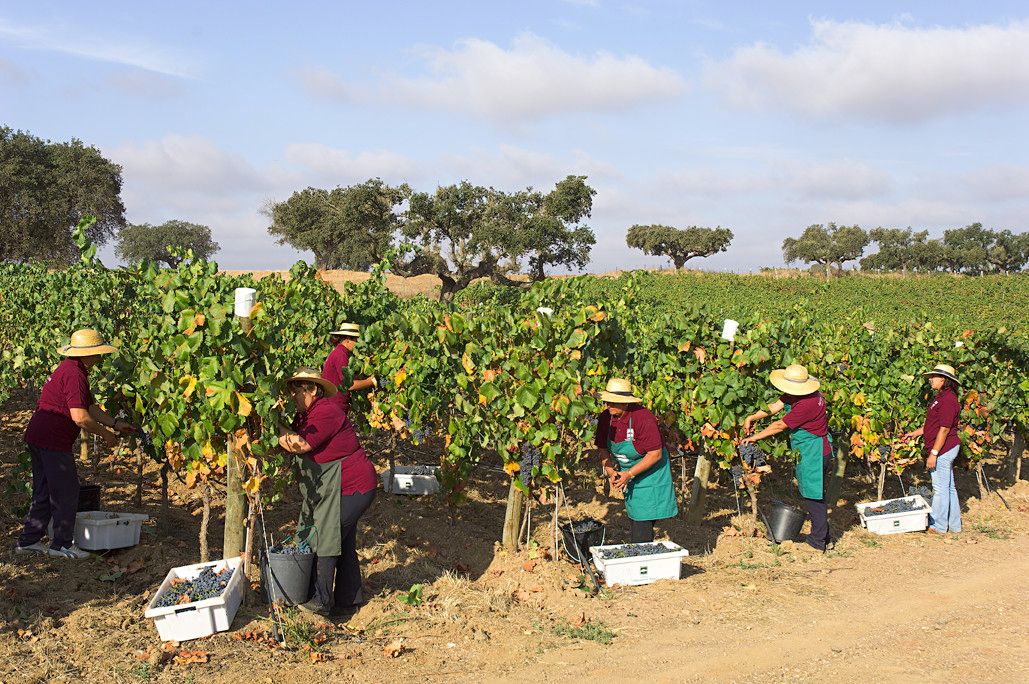You can find our more about the breakthrough Wines of Alentejo Sustainability Programme’s (WASP) Sustainably Produced Certification Scheme by clicking on this link.
I spend a lot of time covering sustainability initiatives and talking to wine lovers across the UK about how the wine world in general is managing those transitions. I’m not going to lie, it’s not always as progressive as it could be. But I’m not in the game of naming and shaming, much preferring to highlight those who really impress and shine brightest as a beacon of what is achievable with the technology and know how we already have at our disposal.
After attending the UK launch of the Wines of Alentejo Sustainability Programme’s (WASP) Sustainably Produced Certification Scheme, there was no doubt that this was a serious move in the right direction.
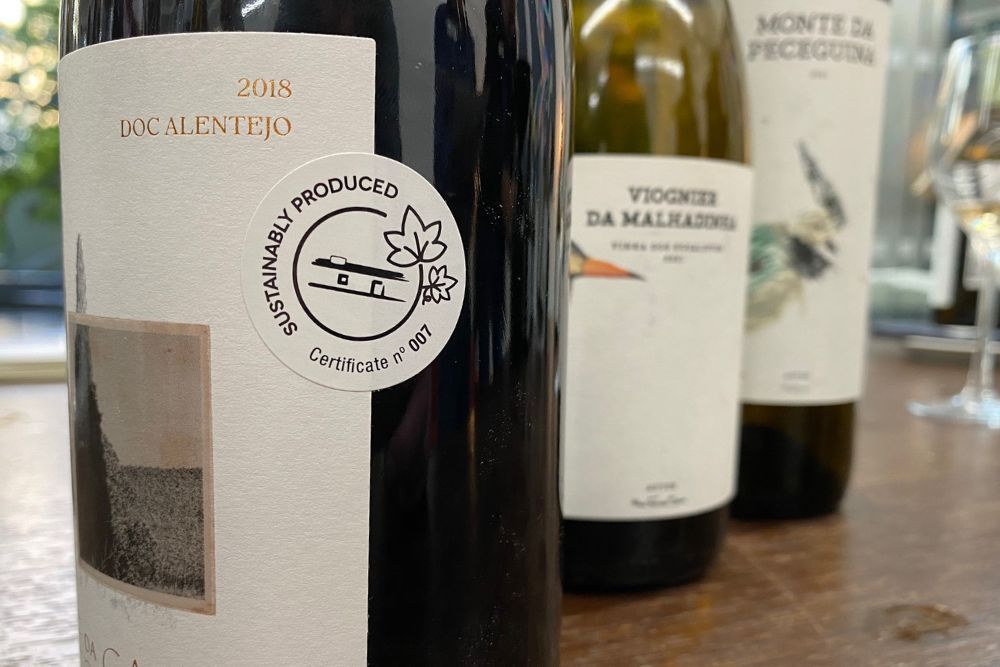
It even has a sticker to prove it: The new Wines of Alentejo Sustainability Programme’s (WASP) Sustainably Produced Certification Scheme
Portugal’s Alentejo region has more reason than most to champion sustainability. The region of Alentejo covers about one third of the land mass of Portugal, despite being home to just 5% of the population. Its wine industry is key to the economy, with over 10% of Portugal’s vines, producing over EUR 350m of wine and providing thousands of jobs in viticulture, viniculture, and hospitality. It is also the hottest wine region in Europe and, as WASP’s manager João Barroso pointed out, they are living climate change right now. The industry needed to act.
Where To Start
Initial discussions began in 2013. João Barroso came from outside of the wine industry, with a background in environmental engineering, to help mould the solution. Even in the early stages it was important not to try and reinvent the wheel. “We knew that suppliers had already begun to ask our producers for their sustainability goals and most didn’t know how to answer,” says Barroso. “Producers in Chile and California could, and had wonderful certification schemes to fall back on, so we worked with them to create our own. We’re similar countries with similar problems, so it made a lot of sense.”
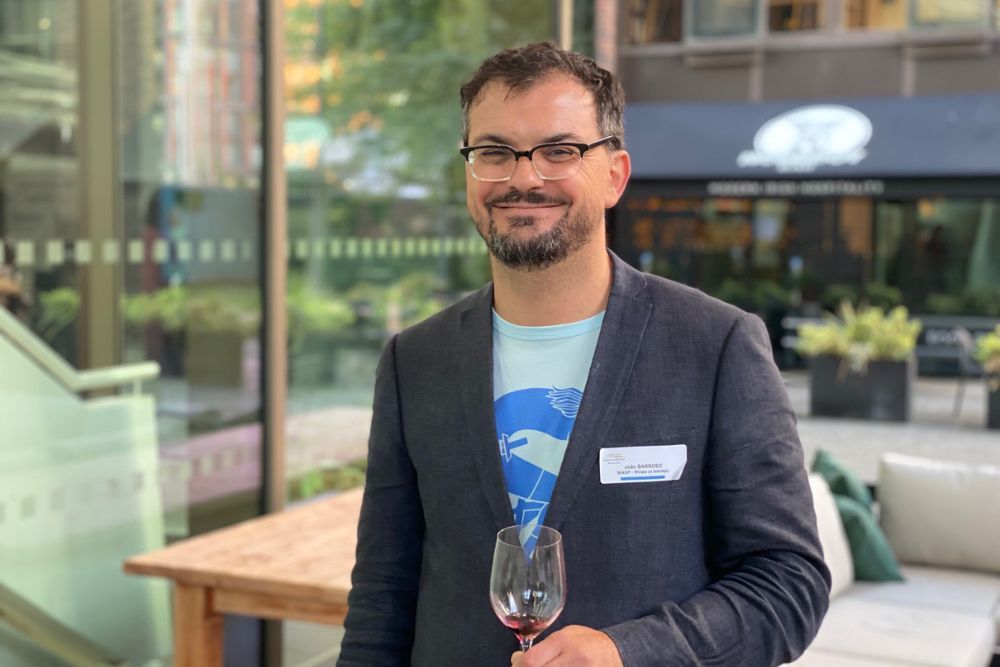
João Barroso has come from outside the wine sector to help develop Alentejo’s sustainability programme
The ethos behind WASP follows what is known as the Scandinavian model. The idea behind this is that you have three main goals; economic, social, and environmental. Economic goals are inherently nested in social goals, and those social goals are inherently nested within environmental goals. What arose was a Sustainability Programme that contains 108 criteria spread across 11 sections including water, energy, and waste management in the vineyard and cellar, as well as human resources concerns throughout the participating business.
Trust is Key
One of the biggest issues with sustainability is that the average consumer either doesn’t understand the term, or even worse doesn’t trust it. The devil is the detail that few have the time to delve into, which has allowed Green Washing to become rampant. WASP has made sure that participants are held accountable through self-evaluation, but also that those evaluations are checked an external certifying body. And not just one in fact, they use four, including SGS (https://www.sgs.com/en) and Bureau Veritas (https://group.bureauveritas.com/).
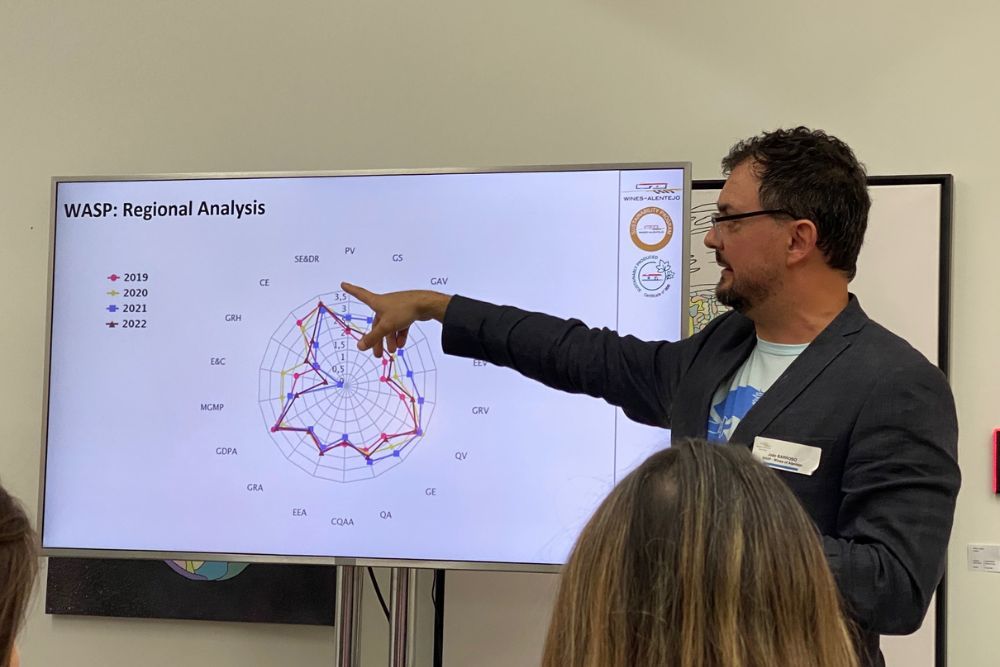
That stringent set-up has been repaid by awards, international certifications, and trust from importers across the globe. WASP is now officially recognised by, amongst others, the Systembolaget in Sweden, the Vinmonopolet in Norway, and the LCBO in Canada. “This is massive for us as a programme,” adds Barroso. “Consumers in Sweden, for example, don’t have to worry about whether to trust us.Systembolaget have done the digging for them and we’ve passed with flying colours.”
Indeed in 2018 Intertek carried out a review of 35 sustainability initiatives across the globe, with WASP scoring an impressive 10 out of 12. In 2022 they have improved further to 11 out of 12, the same as Chile and California. “We set out to emulate them and now we’re peers!” states Barroso with evident pride.
Share the Love
Trust with the consumer is one thing, but if the producers don’t sign up then any large initiative like WASP is not going to take off. “Initially it was a case of convincing the producers it was worth the time and that their bottles would sell,” says Barroso, “after that the results themselves and peer pressure are working. The plates of certification in the vineyards and in the wineries have become a badge of honour that others want to achieve.”
One of the most important aspects is the knowledge sharing. Producers that sign up to WASP are invited to seminars to discuss best practices and how to work better together as an industry to overcome the common issues. As Barroso put it: “We needed to stop the competition between wineries and encourage producers to participate, not just benefit.”
This collective mindset led to arguably the scheme’s most prized award, the 2019 European Ambassador for Rural Innovation for the LIAISON Project. This was not a sustainability award, this was an award for excellence in knowledge sharing.
It’s also voluntary and completely free of charge. Participants get free site visits and free training in areas such as waste, water, and energy management. In the outside world this would cost thousands of euros. They also benefit from the connections of the network. Mafalda Vasques of Herdade Dos Grous spoke of developing a way of calculating the carbon process across all their processes in conjunction with the University of Lisbon. “When we could put a figure on different areas the required actions became clearer. We’ve now decreased our bottle weights by 115g, which makes a huge difference over the 500,000 bottles we produce annually.”
Local Engagement is a Must
The wine industry is constantly at risk of losing young workers to the lures of city living and historically better paid jobs. It was important that WASP included incentives to attract young, local workers. Marta Bowers, owner of importer Marta Vines, says she has seen a big difference in the make-up of the staff at wineries in recent years. Casa Clara, one of the wines of the region they import, has a predominantly young and local team. Herdade da Malhandinha Nova take pride in a 50:50 split between boys and girls in their team, something that was painfully rare in such rural settings until very recently. The wine industry in Alentejo is aiming to prove that it truly is for everyone.
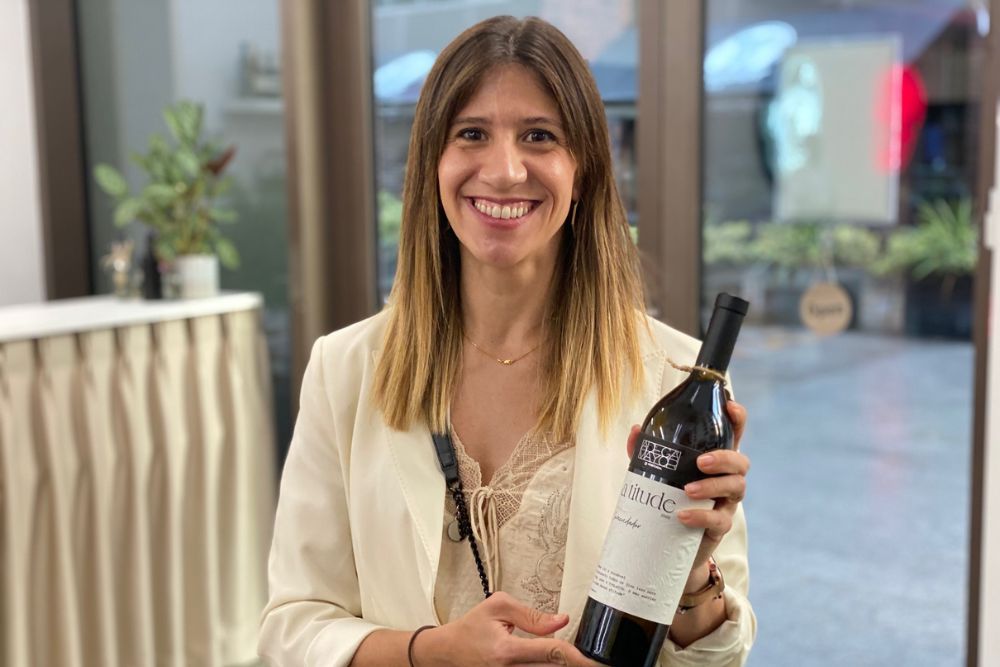
Rita Nabeiro of Adega Mayor says it has invested in its own CSR policy
Rita Nabeiro of Adega Mayor spoke of the development in staff policy since they joined WASP in 2015. “We were one of the first wineries in Portugal to have a written CSR policy. Our view is that if our team trust us as employers, then they’re more likely to stay.” Adega Mayor runs a free Kindergarten for its employees and employ them all year round, not just seasonally, to create a sense of security. That sense of security has led to unexpected consequences. “We’ve noticed a higher than normal birth rate amongst our employees,” notes Nabeiro, “which we believe is because they are more secure and happier!” Quite.
Building on Early Success
Early success has allowed WASP to feel confident to go out to the world and spread the news about what they’re trying to achieve. As marketing manager, Tiago Caravana, puts it: “Part of the avoidance of Green Washing was to ensure we achieved results first before spreading the word.”
The initial results have been impressive. “Our participants have achieved an average saving of 20% water and 30% on electricity,” beams Barroso, “with some reducing their water usage from 14 litres per litre of wine down to just 5 litres. We are saving natural resources and improving efficiency, which in turn is leading to an obvious and significant cost reduction.”
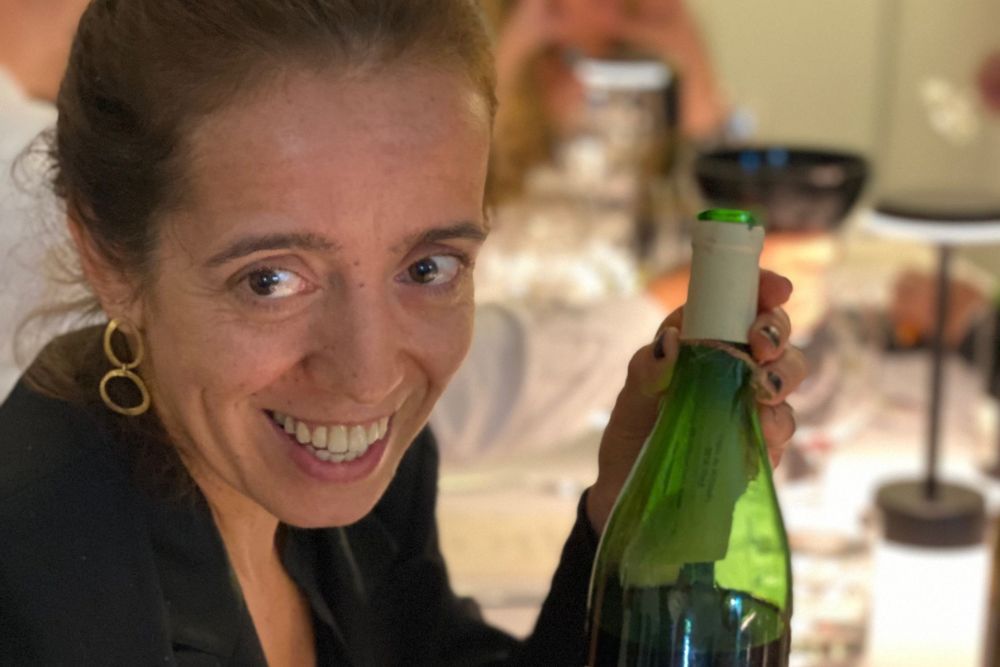
Catarina Vieira of Herdade Do Rocim looks to empower its staff
Catarina Vieira is the owner of Herdade Do Rocim and believes in using the data they capture to empower their staff to make better decisions and continue to drive success. “We’re citizens first, and winemakers second,” notes Vieira. “We send our monthly report on what we’re saving in terms of energy, water, and waste to our employees and they can see what’s working and what still needs improving. Our employees are turning off taps and switching off lights by habit now.”
Next Steps
There is still low hanging fruit to be had, especially for those producers new to the scheme, but what about the future? What are the next steps for WASP?
Speaking after the presentation, Barroso was already excited about what was to come. “As the efficiencies of data increase we can publish annual reviews that will drive the change further. We’re also keen to explore more angles of regenerative agriculture and increasing the protection of our habitats and local wildlife. The best grapes need healthy soils, and healthy soils need biodiversity. That much has always been understood.”
What is clear is that the Wines of Alentejo have created one of the benchmarks for Sustainability Programmes in the wine trade. They’ve done it in a very short space of time and delivered real cost savings and engagement with participants. The future of this historic wine region has become a lot brighter.
- For more information on Wines of Alentejo’s Sustainability Programme, please contact Ana Sofia Oliveira at The Wine Agency (ana@thewineagency.pt)
Wines of Alentejo would like to inform you that:
- The event organisation offset all CO2 emissions related to the flights of the entities, producers and staff who travelled from Portugal
- All the printed materials FSC certified paper and eco-inks were used, and wooden-eco roller banners were produced
- All the materials used to produce this event are eco-friendly and sustainable
- The chosen venue, Chef Sven-Hanson Britt’s Oxeye, was specifically chosen because of its sustainable practices
The Eight Certified Producers, present at the event were:
- Adega Mayor (www.adegamayor.pt) imported by Atlantico UK (www.atlantico.co.uk)
- Casa Clara (www.casaclara.pt) imported by Marta Vine (www.martavine.co.uk)
- Casa Relvas (www.casarelvas.pt) imported by Raymond Reynolds (www.raymondreynolds.co.uk)
- Herdade da Malhadinha Nova (www.malhadinhanova.pt) imported by Raymond Reynolds (www.raymondreynolds.co.uk)
- Herdade de Coelheiros (https://www.coelheiros.pt/) is looking for distribution in the UK.
- Herdade dos Lagos (www.herdade-dos-lagos.de) currently looking for an importer.
- Herdade do Rocim (www.rocim.pt) imported by Hallgarten Novum Wines (www.hnwines.co.uk)
- Herdade dos Grous (www.herdadedosgrous.pt) imported by Marta Vine (www.martavine.co.uk)
